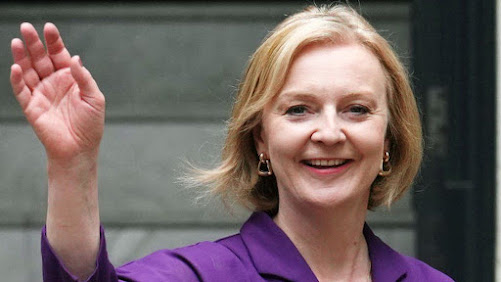
(Man Without Cant: A Funeral Oration - November 8, 1986)
By Ray
Ekpu
This is one moment in my life when words cannot adequately
convey the enormity of my personal grief and the enormity of the collective
grief of my colleagues and associates. This is so because Dele Giwa was not
only a fine journalist, a devoted patriot and nationalist, but also an
admirable leader of men. This is so because of the manner of his death. A man
of high visibility, it is an irony of fate that he was hacked down in his
prime, at the unripe age of 39, by the anonymous instrument of a parcel bomb, a
phenomenon unheard of in the history of our country.
In a different circumstance, William Shakespeare was compelled
to say that to praise what is lost makes remembrance dear. Since his
assassination on October 19,1986, Dele Giwa has bathed in glowing encomiums
poured on him by thousands of Nigerians and foreigners alike who have felt
touched, deeply touched, by the termination of his life when that life appeared
to be merely about to begin, and when his contributions to the country were
invaluable. But no justice can be done to his memory or indeed to history if we
should fail to say why he has loomed so large in the consciousness of
Nigerians.
Dele was a courageous man, warm, generous, and frank, sometimes
frank to a fault. He lacked the inclination for pettiness or the inclination
for discrimination on the basis of tribe, religion or class or social station
or such other mundane impediments that put a wedge between one man and another.
He was invigorating company, he was blessed with an abundance of humour, wit
and wisdom, and he was able to get along in the most delightful way with people
whose life touched his.
*The Four founders of Newswatch: Dele Giwa, Ray Ekpu, Dan Agbese, Yakubu Mohammed
In his public and private life he was a man who lacked cant and
chicanery. He knew the meaning of loyalty, loyalty to principle, loyalty to
friendship, loyalty to club, loyalty to country. He was not the kind of man who
would vote one way in a committee session and vote another way at the general
assembly for, he was consistent in his principles, and these principles sprang
from the inner wells of his conviction.
As a journalist, he was one of the greatest, living or dead, in
Nigeria or anywhere. He was innovative, flexible and enterprising. He displayed
tremendous dexterity in the handling of prose and he made words his handmaiden.
He loved challenges and he proved that he was capable of handling great
challenges and of overcoming such challenges almost effortlessly. He exhibited
during his journalistic career that he was not only a man of great talent, but
also a man of great courage.
He passed through trials and tribulations, subjecting himself to
great personal discomfort in order to demonstrate his commitment to his
profession and to humanity. There lies his greatness, for small men only think
of themselves while great men think of humanity. For Dele, humanity was his
constituency and his thoughts were painted on a global canvas.
Dele was a self-made man who rose from the obscurity of a
humdrum existence to the pedestal of national and world prominence. But his
prominence did not come by happenstance. It was not like the little nice parcel
that he found on his table with a nice blue ribbon tied round it.
It wasn't delivered to him on a platter of gold or silver for,
not being one who was born with a golden or silver spoon in his mouth, he knew
the meaning of hard work.
He toiled relentlessly, assiduously, tirelessly, for everything
he got and everything he was.
He believed in work as a logical necessity. Like Abraham Lincoln
he believed that if God gave us two hands and only one mouth there is no reason
why we should starve. In furtherance of his belief, he exerted himself everyday
of his life for the accomplishment of higher ideals. For him work was as
comfortable as sport. In fact, for him work was sport.
Although in his adult years he had his training in the United
States, he did not come back to Nigeria behaving like a quintessential
American. He picked and chose the good aspects of American life and converted
these to good account. He was a Nigerian and he believed that if God in His
infinite wisdom chose to plant him here God had a role for him. He played that
role as devotedly as anyone, which is why in life and in death his
contributions to the country have been much treasured as the public reaction to
his assassination can testify.
His phenomenal achievements have been written on the tablets of
our hearts.
It is apparent that Nigerians have come to appreciate that Dele
did give rather generously his time, his talents and his thoughts to the
building of a new Nigeria. The work is not yet completed.
His death must spur other architects towards greater commitment
to the construction of the edifice of our dream.
Dele's death represents for us - his wife and children, his
relations and compatriots, his colleagues and friends - the slings and arrows
of outrageous fortune but our prayer ought to be that his ideals and his
aspirations should not be interred with his bones.
If by his death he has watered the tree of our national
survival, if by his death he has fuelled our desire to toil for a better
Nigeria, then his death, painful, tragic, untimely, senseless though it is,
would not have been in vain. That is the only way to give life to the dead and
to give hope to the living.
Dele's death is death in the family, in the Giwa family, in the Newswatch family, in the Nigerian family and in
the family of humanity. For us at Newswatch his family are part and
parcel of us, and we are part and parcel of them.
His responsibilities to his biological family are now our
responsibilities and we will ensure that his family do not suffer any
deprivation as a result of his departure. That is our commitment.
We wish to renew our pledge, if a renewal is necessary, that we
shall do everything in our power to ensure that his assassins, whoever they may
be, are dug out and dealt with according to the law.
That is our commitment.
In death, Dele has acquired a larger-than-life image. For a man
who lived in deed, and not in years, this must be so. And so his death makes us
all who treasured his contributions, who treasured his battle against the
annihilation of Truth, and who treasured his battle against the blight of
Oppression, collective widows.
In the hearts of all of us who loved him and whom he loved -
DELE HASN'T DIED – HE LIVES ON.
*Ray Ekpu, veteran journalist and eminent writer is former CEO of Newswatch Communications
* Culled from Newswatch magazine of November 24, 1986.
RELATED POST











%20Strike.jpg)









